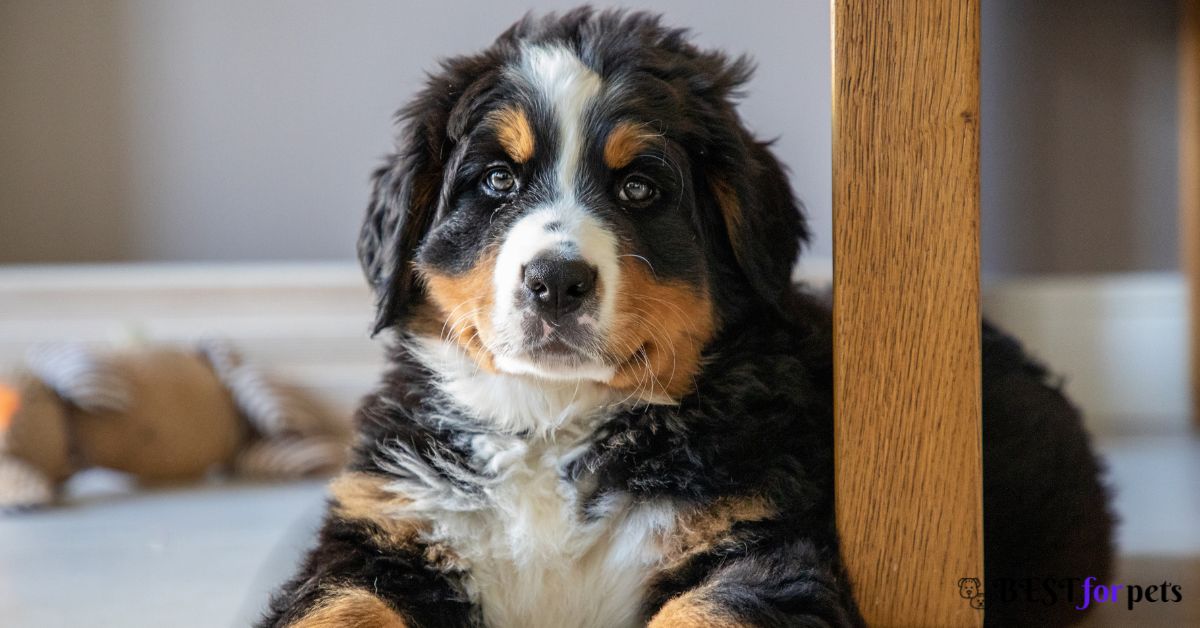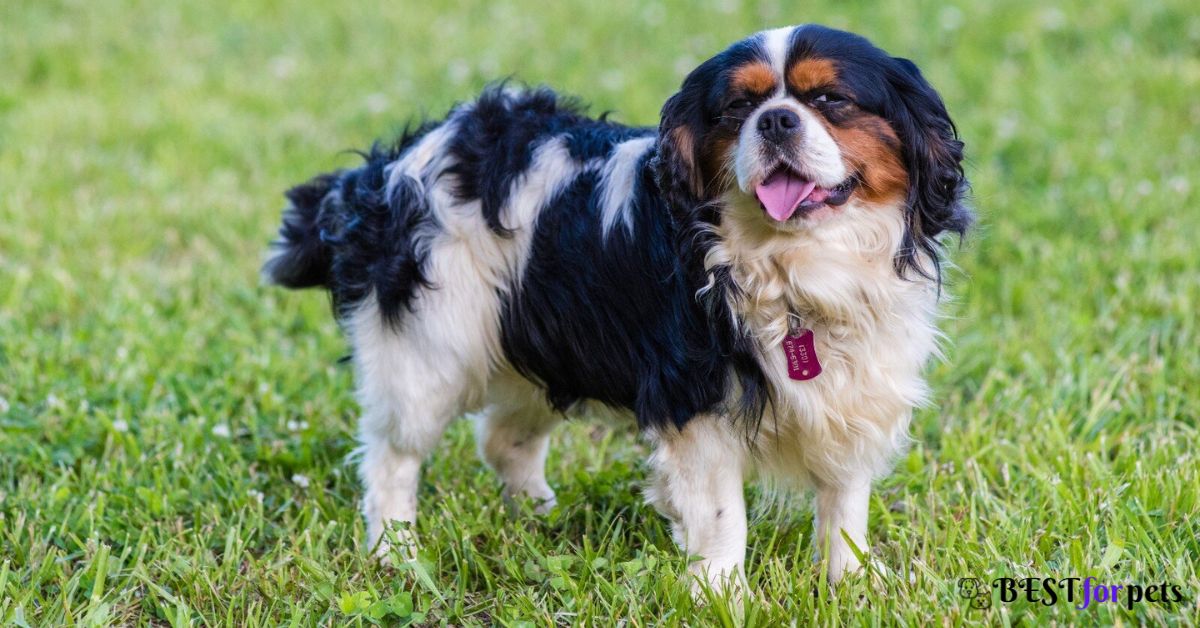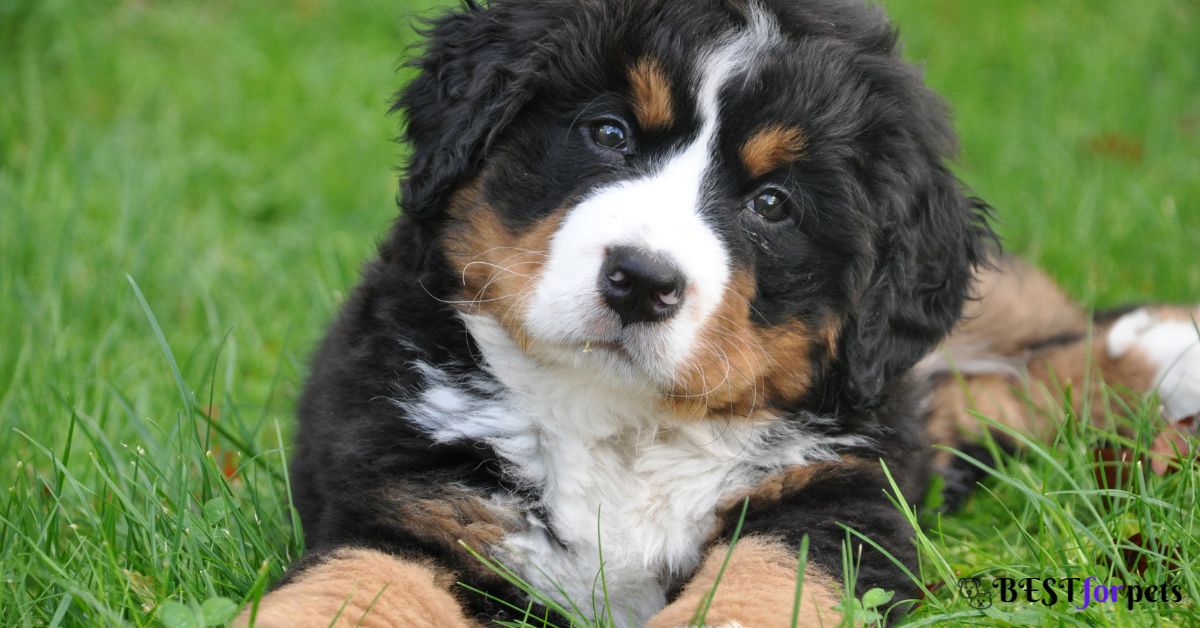In the world of dog lovers, the Bernese Mountain Dog is known for its gentle temperament, majestic appearance, and unwavering loyalty. However, due to its larger size, not everyone can accommodate this breed in their homes.
Enter the Mini Bernese Mountain Dog, a downsized version of its larger counterpart that offers all the qualities that make the Bernese Mountain Dog beloved, but in a smaller package.
In this blog post, we’ll explore the fascinating characteristics, history, temperament, and care requirements of the Mini Bernese Mountain Dog.
Mini Bernese Mountain Dog
History of Mini Bernese Mountain Dog
The Mini Bernese Mountain Dog, also known as the Mini Berner or Miniature Bernese Mountain Dog, is a relatively new breed that has gained popularity in recent years.
It is a result of carefully planned crossbreeding between smaller Bernese Mountain Dogs and other small breeds such as the Cavalier King Charles Spaniel or the Miniature Poodle. The goal of this breeding program was to create a downsized version of the Bernese Mountain Dog that retained its beloved characteristics but in a more compact size.
While not recognized as an official breed by major kennel clubs, the Mini Bernese Mountain Dog has captured the hearts of dog lovers looking for a smaller yet equally charming version of the original Bernese Mountain Dog.
Appearance of Mini Bernese Mountain Dog
The Mini Bernese Mountain Dog closely resembles its larger counterpart in terms of appearance, with its striking tri-color coat being a notable feature. These dogs typically have a black base coat with rust-colored markings on the cheeks, eyebrows, legs, and chest.
They also sport white markings on the face, chest, and paws, which add to their distinct look. While their size is reduced compared to the standard Bernese Mountain Dog, they still exhibit a sturdy and well-built frame.
Mini Bernese Mountain Dogs stand between 12 to 18 inches tall at the shoulder and weigh around 25 to 50 pounds. Their compact yet proportional body gives them an endearing and adorable appearance, making them irresistible to many dog enthusiasts.
Mini Bernese Mountain Dog Temperament and Activities
The Mini Bernese Mountain Dog shares many of the same temperament traits as its larger counterpart. They are known for their friendly, affectionate, and gentle nature, making them excellent family dogs. These dogs thrive on human companionship and form strong bonds with their owners. They are often described as loyal and devoted, always eager to please their loved ones. Their patience and tolerance make them suitable companions for households with children and other pets.
In terms of activities, Mini Bernese Mountain Dogs require a moderate amount of exercise to stay physically and mentally stimulated. Daily walks, interactive play sessions, and engaging in games like fetch or puzzle toys are essential for their well-being. They enjoy participating in activities that involve their owners, such as obedience training or agility.
These intelligent dogs are quick learners and typically respond well to positive reinforcement-based training methods. While they may not have the endurance for long hikes or intense physical activities like their larger counterparts, they still appreciate opportunities for outdoor exploration and adventure.
Also read – Scott American Bulldog: Everyhting you need to know 2023
Mini Bernese Mountain Dog Personality and Behavior
The Mini Bernese Mountain Dog exhibits a wonderful personality that closely mirrors that of its larger counterpart. These dogs are known for their friendly, affectionate, and gentle nature. They are incredibly loyal and form strong bonds with their owners, making them excellent companions and family pets.
Mini Bernese Mountain Dogs are typically good-natured and get along well with children, other pets, and even strangers. They have a patient and tolerant disposition, which is especially important in households with young children.
These dogs are highly intelligent and eager to please, which makes training relatively easy. They respond well to positive reinforcement-based methods and enjoy engaging in mentally stimulating activities. They thrive on human companionship and can suffer from separation anxiety if left alone for extended periods.
Ensuring they receive adequate exercise, socialization, and mental stimulation is essential for their overall well-being and to prevent any behavioral issues that may arise from boredom or lack of interaction.
Factors Affecting the Price of Mini Bernese Mountain Dog
Breeder Reputation and Quality: The reputation and quality of the breeder can significantly impact the price of a Mini Bernese Mountain Dog. Reputable breeders who prioritize the health, temperament, and overall well-being of their dogs often charge higher prices for their puppies.

Pedigree and Lineage: Mini Bernese Mountain Dogs with exceptional pedigrees or champion bloodlines may be price higher due to their potential for meeting breed standards and participating in dog shows or competitions.
Size and Rarity: Mini Bernese Mountain Dogs are not recognized as an official breed by major kennel clubs. Consequently, their smaller size makes them more rare and desirable, which can influence their price.
Health Clearances and Genetic Testing: Responsible breeders invest in health clearances and genetic testing for their breeding dogs to minimize the risk of inherited diseases. Puppies from such breeders may have higher prices due to the additional price and effort put into health screening.
Geographic Location: prices for Mini Bernese Mountain Dogs can vary depending on the region and the availability of breeders. In areas with a high demand and limited supply, the prices may be higher.
Mini Bernese Mountain Dog Health Issues
While the Mini Bernese Mountain Dog is generally a healthy breed, like all dogs, it may be prone to certain health issues. Due to the downsizing breeding process, the aim is to reduce the occurrence of inherited diseases commonly seen in the Bernese Mountain Dog breed. However, it’s essential for prospective owners to be aware of potential health concerns. Some health issues that can affect Mini Bernese Mountain Dogs include:
Hip and Elbow Dysplasia: This is a common orthopedic condition where the hip or elbow joint does not develop correctly, leading to pain and mobility issues.
Progressive Retinal Atrophy (PRA): PRA is a group of inherited degenerative eye diseases that can lead to vision loss and blindness.
Cancer: Like their larger counterparts, Mini Bernese Mountain Dogs may be susceptible to certain types of cancers, such as mast cell tumors.
Hypothyroidism: This is a condition where the thyroid gland does not produce enough thyroid hormone, resulting in various health problems.
Mini Bernese Mountain Dog Care Tips
Training and Exercise
Training: Mini Bernese Mountain Dogs are intelligent and eager to please, making them relatively easy to train. Positive reinforcement techniques, such as reward-based training methods, work well with this breed. Consistency, patience, and early socialization are crucial for their development. Obedience training helps establish a strong bond between the dog and their owner and ensures they are well-behaved and responsive to commands.
Exercise: While smaller in size, Mini Bernese Mountain Dogs still require a moderate amount of exercise to maintain their physical and mental well-being. Daily walks, playtime, and interactive activities are necessary to keep them active and prevent behavioral issues due to pent-up energy. Engaging in activities like fetch, puzzle toys, or agility training can provide mental stimulation and help satisfy their exercise needs. On average, they require around 30 minutes to an hour of exercise each day.
Diet and Nutrition
A balanced and nutritious diet is vital for the overall health and well-being of a Mini Bernese Mountain Dog. High-quality dog food that is appropriate for their age, size, and activity level should be provided.
The diet should consist of a proper balance of proteins, fats, carbohydrates, vitamins, and minerals. Feeding guidelines provided by the manufacturer should be followed, but it is important to monitor the dog’s weight and adjust the portion sizes accordingly to prevent obesity.
It is recommended to feed them in two or three smaller meals throughout the day rather than one large meal to prevent bloating or other digestive issues. Fresh water should always be available for hydration. Consulting with a veterinarian can help determine the specific dietary needs of a Mini Bernese Mountain Dog and address any nutritional concerns or dietary restrictions based on their individual health condition.
Grooming
The Mini Bernese Mountain Dog has a dense, medium to long tri-color coat that requires regular grooming to keep it healthy and free from matting. Here are some grooming tips for Mini Bernese Mountain Dogs:
Brushing: Regular brushing is essential to prevent tangles, and matting, and to remove loose hair. Use a slicker brush or a medium-toothed comb to gently brush through their coat, paying attention to the areas prone to matting, such as behind the ears, armpits, and hindquarters.
Bathing: Mini Bernese Mountain Dogs should be bathed as needed, typically every 6 to 8 weeks or when they are dirty. Use a dog-specific shampoo and conditioner to keep their coat clean and moisturized. Avoid over-bathing as it can strip their coat of natural oils.
Nail Trimming: Trim their nails regularly to keep them at a comfortable length. Use a dog nail clipper or grinder, and be cautious not to cut into the quick, which can cause bleeding and discomfort. If you’re unsure, consult a professional groomer or veterinarian for guidance.
Ear Cleaning: Check their ears regularly for signs of redness, discharge, or odor. Clean their ears with a veterinarian-recommended ear cleaner and cotton balls. Avoid inserting anything deep into the ear canal to prevent injury. If you notice any concerning symptoms, consult a veterinarian.
Dental Care: Brushing your Mini Bernese Mountain Dog’s teeth regularly can help prevent dental issues. Use a dog-specific toothbrush and toothpaste to maintain their oral hygiene. Dental chews and toys can also help promote good dental health.
Professional Grooming: While regular at-home grooming is important, occasional professional grooming may be necessary. Professional groomers can provide services such as coat trimming, nail trimming, and sanitary trims. They can also offer guidance on maintaining your Mini Bernese Mountain Dog’s coat between grooming sessions.
Mini Bernese Mountain Dog Lifespan
The average lifespan of a Mini Bernese Mountain Dog is typically around 10 to 12 years. However, with proper care, nutrition, exercise, and regular veterinary check-ups, some Mini Bernese Mountain Dogs may live even longer. It’s important to note that individual dogs may vary, and genetics, overall health, and environmental factors can influence their lifespan.

Responsible ownership, including providing a balanced diet, regular exercise, mental stimulation, and routine veterinary care, can help maximize the lifespan and quality of life for a Mini Bernese Mountain Dog.
Mini Bernese Mountain Dog Maintenance price
The maintenance price of a Mini Bernese Mountain Dog can vary based on factors such as location, individual needs, and lifestyle choices. Here are some general considerations for their maintenance price:
Food: The price of high-quality dog food for a Mini Bernese Mountain Dog can range from $30 to $60 per month, depending on the brand and portion size.
Grooming: Grooming expenses can include regular brushing, occasional professional grooming, grooming tools, and products. The price can range from $30 to $60 per month, depending on the frequency and type of grooming required.
Veterinary Care: Regular veterinary check-ups, vaccinations, flea and tick prevention, and other necessary medical treatments are important for the health and well-being of a Mini Bernese Mountain Dog. Annual veterinary expenses can range from $300 to $600, depending on the location and specific health needs of the dog.
Training and Socialization: Training classes, professional training sessions, and socialization activities may incur additional prices. s can vary depending on the training provider and the specific needs of the dog.
Exercise and Activities: Providing exercise and mental stimulation for a Mini Bernese Mountain Dog may involve prices such as toys, training equipment, and potentially dog daycare or boarding services if needed. These prices will depend on individual preferences and the availability of resources.
Facts about Mini Bernese Mountain Dog
1. The Mini Bernese Mountain Dog is a downsized version of the original Bernese Mountain Dog breed.
2. They typically weigh between 25 to 50 pounds and stand 12 to 18 inches tall at the shoulder.
3. Mini Bernese Mountain Dogs have a striking tri-color coat, with a black base and rust and white markings.
4. They are known for their friendly, affectionate, and gentle nature, making them excellent family pets.
5. Mini Bernese Mountain Dogs are intelligent and respond well to training, especially positive reinforcement methods.
6. They require a moderate amount of exercise and mental stimulation to stay happy and healthy.
7. Health issues that may affect Mini Bernese Mountain Dogs can include hip and elbow dysplasia, progressive retinal atrophy, and certain cancers.
8. Regular grooming, including brushing their coat, is necessary to keep their fur free from matting and debris.
9. Mini Bernese Mountain Dogs have an average lifespan of around 10 to 12 years.
10. They are loyal and devoted companions, always eager to be by their owner’s side.
Conclusion
In conclusion, the Mini Bernese Mountain Dog is a downsized version of the beloved Bernese Mountain Dog breed. They possess a striking tri-color coat and exhibit a friendly, affectionate, and gentle nature.
While they require regular grooming to keep their coat healthy, they are relatively easy to train and make excellent family pets. With proper care, exercise, and grooming, the Mini Bernese Mountain Dog can bring years of joy, companionship, and love to their owners.
Frequently Asked Questions
[sc_fs_multi_faq headline-0=”h4″ question-0=”Are Mini Bernese Mountain Dogs good with children?” answer-0=”Yes, Mini Bernese Mountain Dogs are known to be good with children. They have a gentle and patient nature, making them suitable companions for families.” image-0=”” headline-1=”h4″ question-1=”Do Mini Bernese Mountain Dogs require a lot of exercise?” answer-1=”Mini Bernese Mountain Dogs require a moderate amount of exercise. Daily walks, playtime, and mental stimulation through games and activities are important to keep them physically and mentally stimulated.” image-1=”” headline-2=”h4″ question-2=”How big do Mini Bernese Mountain Dogs get?” answer-2=”Mini Bernese Mountain Dogs typically weigh between 25 to 50 pounds and stand around 12 to 18 inches tall at the shoulder.” image-2=”” headline-3=”h4″ question-3=”Do Mini Bernese Mountain Dogs shed a lot?” answer-3=” Mini Bernese Mountain Dogs have a moderate shedding level. They have a dense coat that requires regular brushing to control shedding and maintain a healthy coat.” image-3=”” headline-4=”h4″ question-4=”Can Mini Bernese Mountain Dogs adapt to apartment living?” answer-4=”Yes, Mini Bernese Mountain Dogs can adapt to apartment living as long as they receive sufficient exercise and mental stimulation. Regular walks and playtime are essential to meet their needs.” image-4=”” headline-5=”h4″ question-5=”Are Mini Bernese Mountain Dogs good with other pets?” answer-5=”Yes, Mini Bernese Mountain Dogs are generally good with other pets. They have a friendly and social nature, making them adaptable to living with other animals.” image-5=”” headline-6=”h4″ question-6=”Do Mini Bernese Mountain Dogs bark a lot?” answer-6=”Mini Bernese Mountain Dogs have a moderate tendency to bark. Proper training and socialization can help manage their barking behavior.” image-6=”” count=”7″ html=”true” css_class=””]
Recommended
1. Armadillo Poop: What does armadillo poop look like
